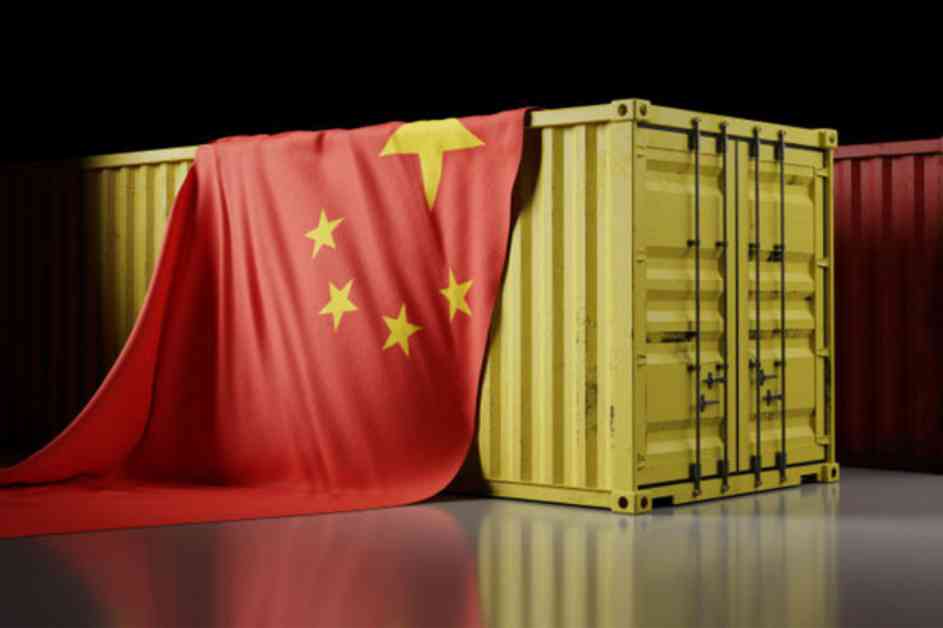Thailand has consistently recorded a trade deficit with China since 2001, according to Piti Disyatat, secretary of the central bank’s Monetary Policy Committee (MPC). The Bank of Thailand is backing government initiatives to address the issue of cheap Chinese products flooding the Thai market.
The price index of imported goods from China is lower than the overall index for all imported products, including durable and non-durable goods and machinery, he said. “The influx of Chinese goods has affected Thailand’s manufacturing sector to varying degrees depending on the industry,” said Mr Piti. “This situation has also contributed to maintaining Thailand’s inflation rate at a low level. While low inflation benefits consumers by reducing living costs, it negatively affects the manufacturing sector and overall competitiveness. Countries around the world have been affected by a flood of Chinese products, and many have taken various measures to address the issue. The central bank supports the government in its efforts to tackle this challenge.”
Local products such as electrical appliances, textiles, and furniture are expected to continue to face pressure from an avalanche of Chinese goods. Some industries, such as automobiles and their suppliers, are experiencing difficulties based on Thailand’s uneven economic recovery, said Mr Piti. According to the central bank, sectors experiencing a weak recovery include the auto industry, integrated circuits, and hard disk drives. These industries account for 6% of GDP, 5% of total employment, and 6% of all business operations.
Industries facing an unclear rebound include property and construction, agriculture, and those directly affected by the influx of Chinese products, noted the central bank. Together, these industries represent 34% of GDP, 51% of employment, and 30% of all businesses. The regulator said the property and construction sectors have also been hampered by recent delays in government budget disbursements. Slower growth in loans for property, building, construction, and mortgages is also dimming the business recovery in these sectors.
The tourism and service sectors have rebounded, although second-tier cities are benefiting less than major tourism destinations. These industries account for 60% of GDP, 44% of employment, and 64% of all businesses. As a result, tourism is expected to be a key driver of Thailand’s economic growth this year, according to the central bank. Mr Piti said the baht’s volatility against the dollar has had varied effects on businesses. However, the baht’s movements are in line with regional peers and are largely influenced by the greenback as well as US monetary policy, noted the central bank.
Domestically, rising gold prices and the swift political transition following the appointment of the new prime minister have contributed to greater stability in the new government, he said. These internal factors support a stronger baht against the dollar, said Mr Piti. This year the baht has remained stable against the dollar after depreciating earlier in the year, with a strengthening trend observed over the past few weeks.
Efforts to Address Cheap Chinese Imports
The impact of cheap Chinese imports on Thailand’s economy cannot be understated. The influx of these products has not only affected the manufacturing sector but has also had ripple effects across various industries. The central bank’s efforts to address this issue are crucial in ensuring the country’s economic stability and competitiveness in the global market. By supporting government initiatives and proposing measures to tackle the challenge of cheap Chinese products flooding the market, the central bank is taking proactive steps to mitigate the negative consequences of this trend.
Mr. Piti highlighted the importance of addressing the issue of cheap Chinese imports, emphasizing the need for comprehensive solutions to protect local industries and enhance overall competitiveness. The price index of imported goods from China being lower than the overall index for all imported products indicates the extent of the challenge faced by domestic manufacturers. By taking a closer look at the industries most affected by this influx of Chinese goods, policymakers can tailor their strategies to provide targeted support and ensure a more balanced trade relationship with China.
Challenges Faced by Key Economic Sectors
The weak recovery of some key economic sectors in Thailand can be attributed, in part, to the impact of cheap Chinese imports. Industries such as automobiles, integrated circuits, and hard disk drives have been struggling to regain their momentum amidst the flood of Chinese products in the market. The central bank’s analysis of these sectors reveals the significant role they play in the country’s GDP, total employment, and overall business operations. By identifying the challenges faced by these industries, policymakers can develop targeted interventions to support their recovery and ensure their long-term sustainability.
The property and construction sectors have also faced setbacks due to delays in government budget disbursements, further exacerbating their recovery process. Slower growth in loans for property, building, construction, and mortgages has hindered the business recovery in these sectors, highlighting the need for timely and efficient financial support mechanisms. By addressing these challenges and providing the necessary resources and support, policymakers can help stimulate growth in these key sectors and contribute to the overall economic recovery of the country.
Opportunities for Economic Growth
Despite the challenges posed by cheap Chinese imports, there are opportunities for economic growth in sectors such as tourism and services. The rebound of these industries, coupled with the stable performance of the baht against the dollar, bodes well for Thailand’s economic prospects. Second-tier cities may benefit less than major tourism destinations, but the overall contribution of these industries to GDP, total employment, and business operations is significant. By leveraging the strengths of these sectors and capitalizing on the growth potential they offer, policymakers can drive economic growth and create more opportunities for sustainable development in the country.
The central bank’s analysis of the baht’s performance against the dollar provides valuable insights into the factors influencing businesses and investors in Thailand. The stability of the baht, coupled with rising gold prices and a smooth political transition, has contributed to a more favorable business environment in the country. By understanding the impact of currency fluctuations and internal factors on the economy, policymakers can make informed decisions to support economic growth and ensure financial stability in the long run.
In conclusion, the efforts of the central bank to address the challenges posed by cheap Chinese imports are essential for Thailand’s economic recovery and competitiveness. By analyzing the impact of these imports on key economic sectors, policymakers can develop targeted interventions to support local industries and enhance overall competitiveness. The opportunities for economic growth in sectors such as tourism and services, coupled with the stable performance of the baht, provide a solid foundation for Thailand’s economic prospects. By leveraging these strengths and implementing effective strategies to address the challenges faced by key industries, policymakers can drive sustainable growth and ensure the country’s long-term economic success.




















